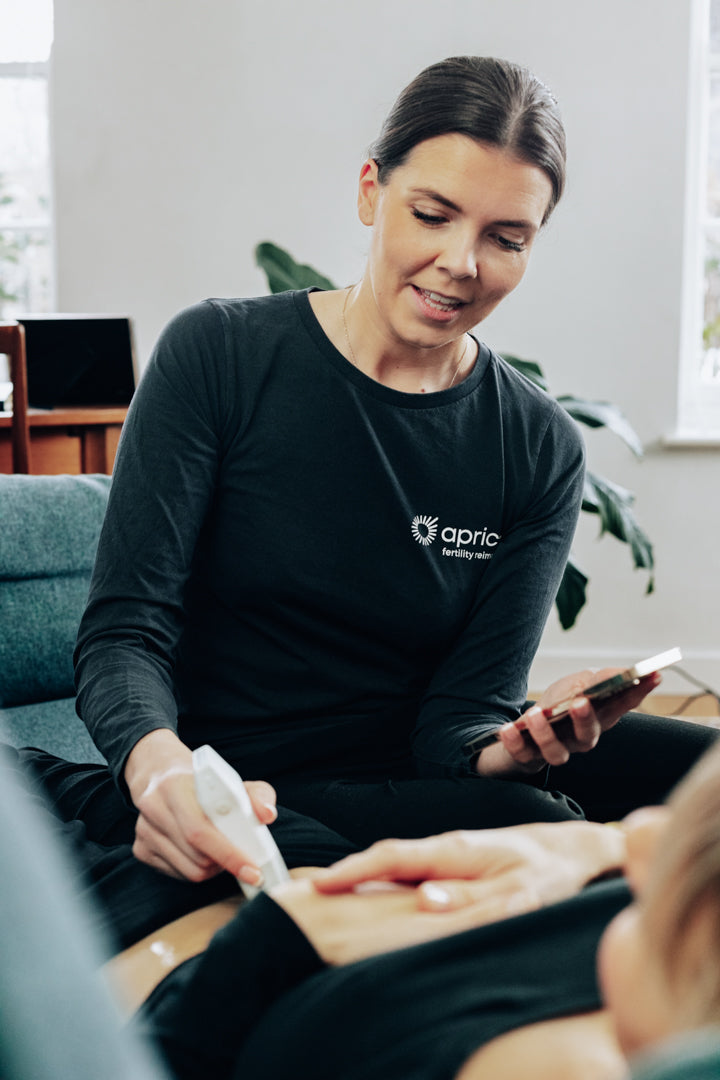Secondary Infertility: Navigating the Journey of Conceiving Again
You've felt the joy of welcoming a child into your life—the first smile, the tiny fingers gripping yours, the milestones that fill your heart with pride. As your family grows, so does your dream of giving your child a sibling.
But what happens when that dream is met with unexpected silence? When months turn into years of hoping, only to face the profound disappointment of a negative pregnancy test again and again?
This is the hidden struggle of secondary infertility, a journey shrouded in confusion, isolation and heartache. While some couples conceive effortlessly, others face unexpected hurdles. Secondary infertility—the inability to conceive or carry a pregnancy to term after previously giving birth—is more common than people realise, affecting around 5% of the population, according to the NHS.
Secondary infertility occurs when a couple has had one or more children previously, but now struggles to conceive without the use of fertility treatments. It's easy to assume that if you've had a child before, conceiving again should be straightforward. However, numerous factors can make subsequent pregnancies more challenging. Age, health conditions, and lifestyle changes can all impact your fertility.
Common Causes of Secondary Infertility
The causes of secondary infertility mirror those of primary infertility and can affect any stage of the conception process:
Maternal age
Fertility naturally declines after age 35. As women and those assigned female at birth age, both the quantity and quality of their eggs diminish.
Male factor infertility
Impaired sperm production or low sperm count can significantly affect the chances of conception.
Ovulation disorders
Conditions like Polycystic Ovary Syndrome (PCOS) can disrupt regular ovulation.
Uterine or tubal issues
Blocked or damaged fallopian tubes, often due to conditions like endometriosis or pelvic inflammatory disease, can prevent fertilisation.
Lifestyle factors
Excessive weight gain or loss, smoking, alcohol use, and stress can all impact fertility.
For more detailed information on causes and treatments, read Apricity Fertility's page on secondary infertility.
Why Is Secondary Infertility Primarily Privately Funded?
Access to fertility treatments in the UK is often limited, especially for those experiencing secondary infertility. NICE guidelines recommend that women under 40 be offered three cycles of IVF on the NHS. However, local Clinical Commissioning Groups (CCGs) frequently impose additional criteria, such as not already having a child, effectively excluding many couples with secondary infertility from publicly funded treatment.
This policy means that many couples must turn to private clinics, shouldering costs that can range from £5,000 to £10,000 per cycle. The financial strain can be immense, disproportionately affecting lower-income families and widening socio-economic disparities in access to fertility care.
Private fertility services like Apricity Fertility offer innovative solutions to make treatments more accessible. By utilising technology and personalised care plans, they aim to reduce costs and improve success rates.
Psychological and Mental Health: The Emotional Toll of Secondary Infertility
The journey through secondary infertility is often fraught with complex emotions. Couples may often feel:
- Isolation, as friends and family often assume that having one child should be enough, leading to a lack of understanding and support.
- Guilt and shame, as parents may feel guilty for wanting another child or believe they are somehow at fault for their fertility struggles.
- Jealousy and sadness, as seeing others expand their families can trigger complex feelings in those struggling.
- A strain on their relationships, as stress can lead to tension between partners, affecting communication and intimacy.
These emotional challenges are common and valid. Seeking support from mental health professionals specialising in fertility struggles can provide coping mechanisms and emotional relief. Support groups offer a safe space to share experiences and feelings with others who understand the journey.
Seeking Support and Treatment Options
Acknowledging the struggle is the first step toward finding a solution. Medical advancements offer various treatment options:
- Medication: drugs like Clomifene and Letrozole can stimulate ovulation.
- Surgery: procedures to repair blocked fallopian tubes or remove uterine fibroids.
- Assisted Reproductive Technologies (ART): options like IVF and IUI can assist in conception.
- Lifestyle changes: improving diet, reducing stress, and eliminating harmful habits can enhance your natural fertility levels.
For those unable to access NHS-funded treatments, private clinics often provide alternative, and sometimes the only, pathways. Our partners at Apricity Fertility offer personalised treatment plans that focus on digital support to reduce the number of in-person journeys to a clinic from 10 to two, as well as offer transparent pricing and emotional support services to guide you through your unique fertility journey.
What Not to Say to Someone Experiencing Secondary Infertility
When someone is facing secondary infertility, well-intentioned comments can inadvertently cause pain. Here are some phrases to avoid:
- "At least you have one child." This minimises their current struggle and invalidates their feelings.
- "You should be grateful for what you have." Gratitude doesn't negate the desire to grow one's family.
- "Maybe it's not meant to be." Such fatalistic statements can be dismissive and hurtful.
- "Just relax and it will happen." Infertility is a medical condition, not a state of mind.
Instead, you can offer support by saying:
- "I'm here for you if you want to talk."
- "I can't imagine how tough this is for you."
- "Is there anything I can do to help?"
Final Thoughts
Secondary infertility is a complex and often misunderstood experience. It's essential to recognise that your feelings are valid and that support is available. Open communication with your partner, seeking professional help, and connecting with support networks can make this journey more manageable.
Remember, many have walked this path and found solace and success. With the right support and resources, you too can navigate the challenges of secondary infertility.
See how Apricity Fertility can support you - book a free call at www.apricityfertility.com
Remember, many have walked this path and found solace and success. With the right support and resources, you too can navigate the challenges of secondary infertility.
See how Apricity Fertility can support you - book a free call at www.apricityfertility.com







